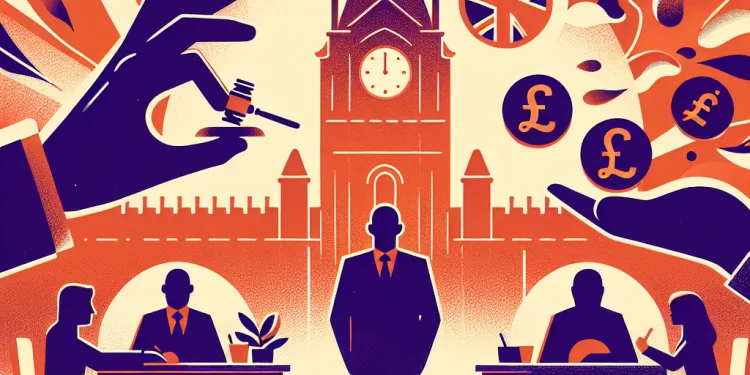
Find A Professional
More Items From Ergsy search
-
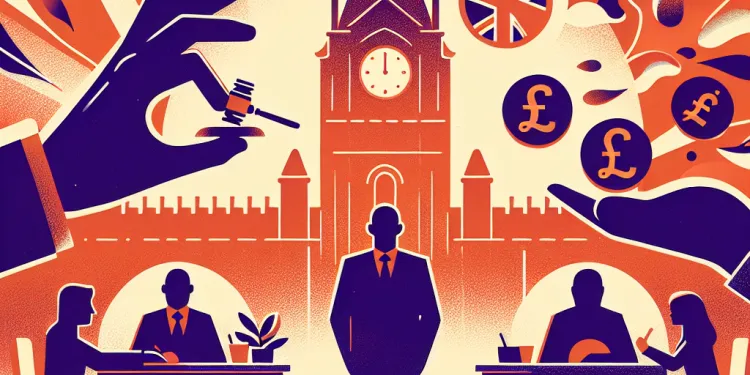
What is the role of a juror?
Relevance: 100%
-
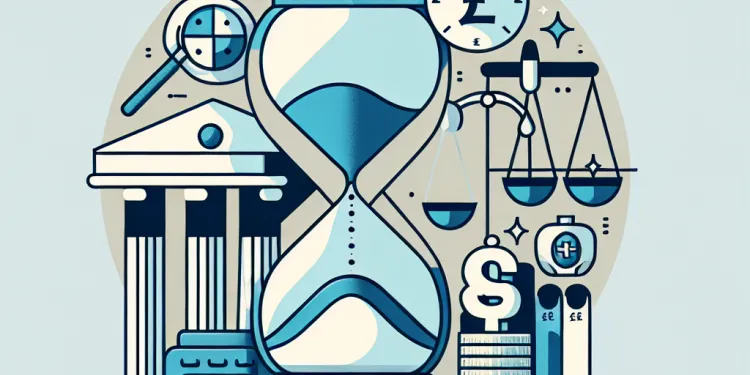
How long does jury service last?
Relevance: 73%
-
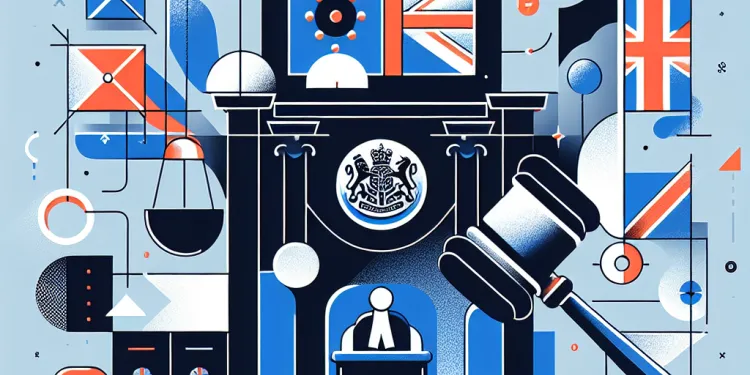
What happens during jury selection?
Relevance: 64%
-

Do I get paid for jury service?
Relevance: 45%
-
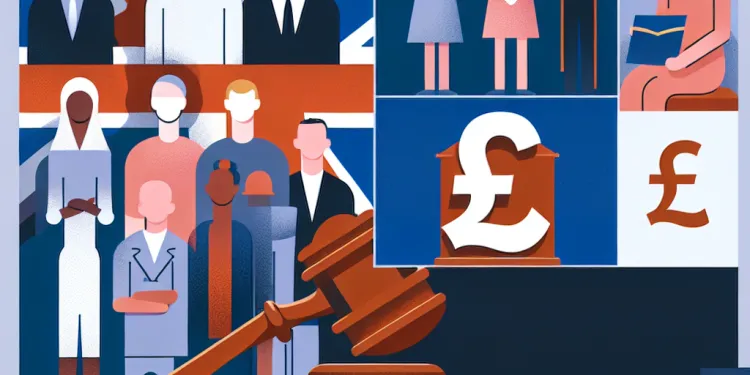
How is jury service selected?
Relevance: 34%
-

Can I use my phone during jury duty?
Relevance: 22%
-

Do I have to do Jury Service?
Relevance: 19%
-

Can I volunteer for jury service?
Relevance: 16%
-
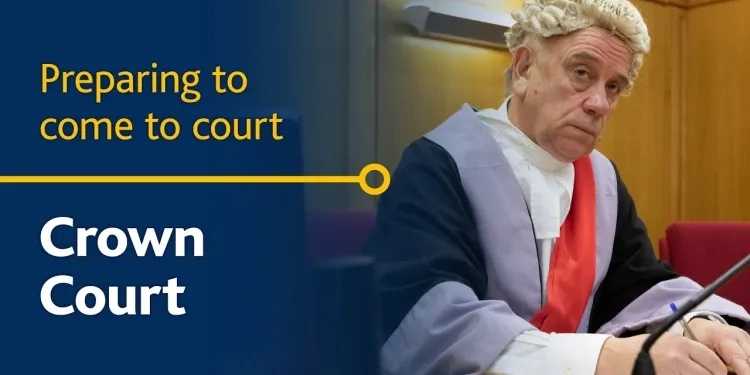
Crown Court - Preparing to come to court
Relevance: 11%
-

Can my employer stop me from attending jury duty?
Relevance: 7%
-

Can my religion exempt me from jury service?
Relevance: 7%
-
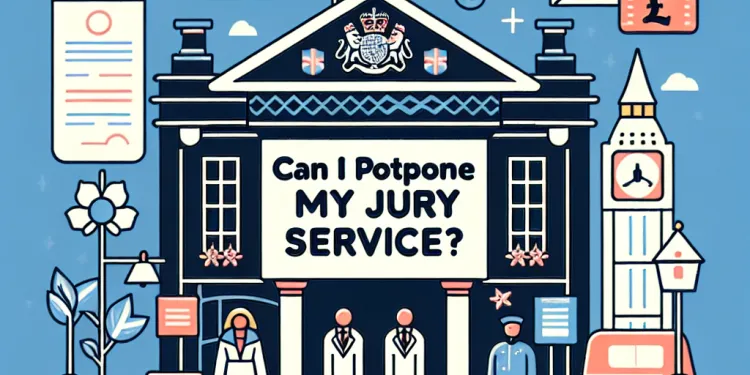
Can I postpone my jury service?
Relevance: 5%
-

What happens if I ignore a jury summons?
Relevance: 3%
-
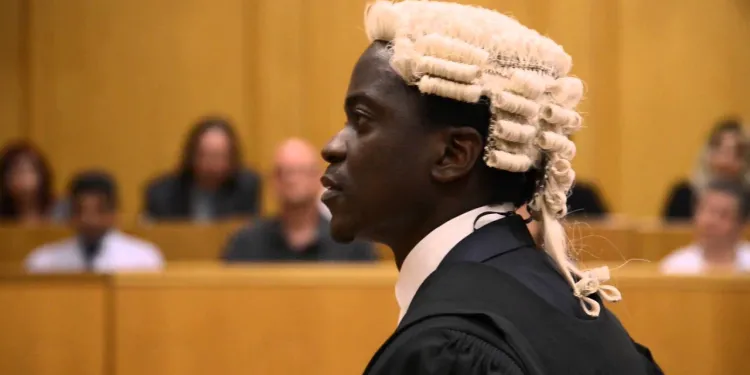
The Crown Court
Relevance: 3%
-

What should I wear to jury service?
Relevance: 2%
Introduction to the Role of a Juror
In the United Kingdom, the role of a juror is a crucial component of the legal system. Jurors are ordinary citizens who are called upon to participate in the administration of justice. They are tasked with reaching a verdict in criminal cases, ensuring that justice is served by fairly evaluating the evidence presented in court.
Selection and Eligibility
Juries in the UK are typically composed of 12 members. To be eligible for jury service, one must be between 18 and 75 years old, registered to vote, and have lived in the UK for at least five years since the age of 13. Certain individuals, such as those with a recent criminal conviction, may be disqualified from serving as jurors. Jurors are randomly selected from the electoral register, and it is a civic duty to attend when summoned.
Duties of a Juror
The primary duty of a juror is to listen to the evidence presented during a trial, including testimonies from witnesses, statements from the defence and prosecution, and other material evidence. Jurors must pay close attention to all proceedings, take notes if allowed, and follow instructions given by the judge. After all evidence has been presented, jurors retire to the deliberation room to discuss the case in private. Their responsibility is to collectively reach a verdict—either guilty or not guilty—based on the evidence and in accordance with the judge’s directions regarding the legal standards and definitions.
Confidentiality and Impartiality
An essential aspect of a juror’s role is maintaining confidentiality about the deliberations and details of the case. Jurors are prohibited from discussing the case with anyone outside of the jury, both during the trial and after it concludes. Impartiality is also critical, meaning jurors must make decisions based solely on the evidence presented in court, free from bias or outside influence.
Importance in the Justice System
Jurors bring a diverse cross-section of society into the courtroom and contribute to the fairness and transparency of the legal process. Their involvement helps uphold the defendant’s right to a fair trial, contributing to public confidence in the justice system. By relying on the judgment of peers rather than solely legal professionals, the jury system integrates a community perspective into legal decisions.
Conclusion
Being a juror is a significant responsibility and a fundamental part of civic duty in the UK. It empowers citizens to actively participate in the legal process, ensuring justice is both served and seen to be served. While the task requires attention, impartiality, and confidentiality, it provides the opportunity to contribute meaningfully to society and the maintenance of justice.
What Does a Juror Do?
In the UK, jurors are very important in the legal system. Jurors are regular people chosen to help make decisions in court cases. They listen to the facts and decide if someone is guilty or not guilty. This helps make sure justice is done fairly.
Who Can Be a Juror?
Usually, there are 12 jurors in a UK jury. To be a juror, you need to be between 18 and 75 years old and be on the voting list. You must have lived in the UK for at least five years since you turned 13. Some people can't be jurors, like if they have a recent criminal record. Jurors are picked randomly, and once chosen, you have to go when asked.
What Does a Juror Do During a Trial?
Jurors need to listen carefully to everything in a trial. This includes what witnesses say, and arguments from both sides in court. Jurors should focus, take notes if allowed, and follow what the judge says. After hearing everything, jurors talk about the case privately to decide if the person is guilty or not, based on what they heard.
Keeping Things Secret and Fair
Jurors must keep all discussions and details of the case secret. They can't talk about the case with people outside the jury, even after the trial is over. Jurors must also be fair and only use the information from the trial to make their decision, not any outside opinions.
Why Are Jurors Important?
Jurors bring different views from various parts of society into the courtroom. They help make sure the legal process is fair and clear. Jurors also ensure the person on trial gets a fair chance to be heard, which helps people trust the legal system. By using the views of regular people, the jury system adds a community outlook to legal choices.
What Being a Juror Means
Being a juror is a big responsibility and an important duty in the UK. It lets citizens take part in legal decisions and ensures justice is done. While being a juror means you must be attentive, fair, and secretive, it also means you are playing a crucial role in helping society and justice.
Frequently Asked Questions
What is a juror?
A juror is a member of a jury, a group of people sworn to render a verdict in a legal case based on the evidence presented in court.
What is the role of a juror?
The role of a juror is to evaluate the evidence presented during a trial and render a fair and impartial verdict.
How are jurors selected?
Jurors are typically selected from the general population through a random process and may undergo a selection process called 'voir dire' to determine their suitability.
What are the qualifications to be a juror?
Qualifications generally include being a citizen, of legal age, and residing in the jurisdiction. Exemptions or disqualifications can include a criminal history or certain occupations.
Do jurors get paid?
Jurors may receive a small daily stipend for their service, but this varies by jurisdiction.
What is jury deliberation?
Jury deliberation is the process by which jurors discuss the case privately to reach a verdict.
Can jurors take notes during the trial?
In many jurisdictions, jurors are allowed to take notes during the trial, but this is subject to the judge's instructions.
Are jurors allowed to discuss the case with others?
Jurors are prohibited from discussing the case with anyone outside the jury until a verdict is reached.
What happens if a juror knows someone involved in the case?
If a juror knows someone involved in the case, they must disclose this information during selection, and it may disqualify them from serving.
Can a juror be excused from duty?
Yes, jurors can be excused for reasons such as personal hardship, bias, or conflicts of interest.
What is a hung jury?
A hung jury occurs when the jurors cannot reach a unanimous decision, leading to a mistrial.
How long does jury duty typically last?
The length of jury duty can vary from a few days to several weeks, depending on the case's complexity.
Is jury service mandatory?
Yes, jury service is a civic duty and mandatory, though certain exemptions or deferrals may be available.
Can jurors ask questions during the trial?
In some jurisdictions, jurors may submit written questions to the judge, who decides if they can be answered in court.
What is an alternate juror?
An alternate juror serves as a backup and participates in the trial but does not deliberate unless a juror needs to be replaced.
What is the difference between a grand jury and a trial jury?
A grand jury determines whether there is enough evidence to indict someone, while a trial jury determines guilt or innocence during a trial.
What happens if a juror violates the court's instructions?
If a juror violates instructions, they may be removed, and the trial could be affected, potentially leading to a mistrial.
Are jurors sequestered during a trial?
In high-profile cases, jurors may be sequestered to prevent outside influence, but this is relatively rare.
Can a juror's decision be influenced by personal beliefs?
Jurors should base their decision solely on the evidence and the law, setting aside personal beliefs or biases.
What should a juror do if they do not understand the legal instructions?
Jurors should inform the judge if they do not understand legal instructions, as it is the judge's role to clarify any uncertainties.
What is a juror?
A juror is a person who helps decide if someone is guilty or not guilty in a court. They listen to what everyone says and help make the decision.
Tips: You can use pictures or videos to help understand what a juror does. Asking someone to explain in simple words can also help.
A juror is a person who is part of a group called a jury. A jury listens to a court case and then decides what happened based on what they hear.
What does a juror do?
A juror is a person who helps decide if someone in court is guilty or not guilty. They listen to what everyone says in the court.
Helpful Tips:
- Ask questions if you don’t understand.
- Take notes during the trial to help you remember.
- Use a dictionary to look up words you don’t know.
A juror is someone who listens to what happens in a court trial.
They look at all the information given to them.
They help decide if someone did something wrong or not.
It is important for a juror to be fair and not pick sides.
If you find reading hard, you can use tools like text-to-speech apps to help you.
These apps can read the words out loud for you.
How do people get picked to be on a jury?
Here is how picking jurors works:
- People are chosen randomly from a list of voters or people with driver's licenses.
- These people get a letter asking them to come to court.
- They will answer questions to see if they can be fair and honest.
- If they are picked, they will listen to a court case and help decide what happens.
If you find reading hard, try asking someone to read it out loud with you or use a reading app to help.
Jurors are picked from the general public in a random way. There is a process called 'voir dire' to see if they are right for the job.
Who can be a juror?
Here is who can be a juror:
- You must be at least 18 years old.
- You need to be a citizen of the country.
- You must understand what is happening in court.
If you need help understanding, you can ask a friend or family member to explain things to you.
You can also use tools like text-to-speech software to read the information out loud for you.
To qualify, you usually need to be a citizen, be old enough, and live in the area. You might not qualify if you have a criminal record or do some jobs.
Do jurors get money?
When you are a juror, you might get money. This money helps pay for your time. It is to thank you for helping in court.
Sometimes, they also help with travel or food costs. Check with the court for how much they pay.
Helpful tip: Ask for help if you do not understand. You can ask a friend or use a simple online tool to read more about being a juror.
When people are chosen to be on a jury, they might get a little bit of money each day. This money is different in each area.
What is jury deliberation?
Jury deliberation is when a group of people talks about a case. They try to decide if someone is guilty or not guilty. They talk in private and take as long as they need. This happens after they hear all the facts in a trial.
Tools to help:
- Use Simple Words: Break down difficult words.
- Check Understanding: Ask questions to make sure everything is clear.
- Take Breaks: Rest if you feel tired.
Jury deliberation is when the people in the jury talk about the court case in private. They do this to decide if someone is guilty or not guilty.
Helpful tools or ideas: To make this easier, draw pictures of each step or use simple words to explain it. You can ask someone to help read it out loud, too.
Can people on a jury write things down during the trial?
In lots of places, people on a jury can write notes during a trial. But, they need to listen to the judge’s rules.
Can jurors talk about the case with other people?
When you are a juror, you must not talk about the case with other people. This means you should not talk to friends, family, or on social media about the case.
It is important to keep the case a secret. This helps to make sure the trial is fair.
If you want, you can use tools like reminders on your phone or write notes to yourself to remember not to talk about the case.
Jurors cannot talk about the case with people who are not on the jury until they decide the result.
What if a juror knows someone in the case?
If you are a juror and you know someone in the case, tell the judge. This is important because you need to be fair and not have a personal connection. The judge will decide what to do next.
Helpful tips:
- Speak up if you recognize anyone in the case.
- Stay honest so the trial is fair.
If a person on the jury knows someone in the case, they must say so when chosen. This might mean they cannot be on the jury anymore.
Can a juror get out of jury duty?
Yes, sometimes a juror does not have to do jury duty.
You might not have to do jury duty if you have a good reason. This could be if you are sick or have to take care of someone.
If you think you can't do jury duty, you should tell the court. You can ask a friend or family member to help you write a letter.
You can also use a computer program that turns talking into writing to help you with the letter.
Yes, jurors can be let go if they have personal problems, if they are not fair, or if they have a conflict.
What is a hung jury?
A jury is a group of people who decide if someone broke the law.
Sometimes, the jury cannot all agree. This is called a "hung jury."
This means they cannot decide if the person is guilty or not guilty.
If you need help reading, you can ask someone to read with you. You can also use an app that reads words out loud.
A "hung jury" happens when the people deciding a case in court can't all agree on one answer. This means the trial has to stop without a decision.
How long does jury duty usually take?
Jury duty can last a short time or a long time. Sometimes it is only a few days. Other times, it can be a few weeks. It depends on how complicated the case is.
Do you have to do jury service?
Sometimes, adults are asked to help in court. This is called jury service. You must do it if you are asked, unless you have a good reason not to. It's like when you have to go to school.
If you find reading hard, you can ask someone to help you. You can also use tools that read the words out loud. That way, you can understand better.
Yes, being on a jury is something everyone has to do. It's important to help in this way, but some people might not have to do it right now or at all. They might be able to wait or be excused for a good reason.
Can jurors ask questions during the trial?
Sometimes, people on the jury can ask questions during a trial. It depends on the rules of the court and the judge in charge. If jurors can ask questions, they should talk to the judge first. The judge will decide if the question is okay.
If you are part of a jury, you can use these tools to help understand better:
- Ask the judge if you don’t understand something.
- Write down notes during the trial to remember important points.
- Talk with other jurors during breaks if you have questions.
In some places, people on a jury can write down questions and give them to the judge. The judge then decides if their questions can be answered in court.
What is an alternate juror?
An alternate juror is a backup juror.
They listen to the same trial as the main jurors.
If one of the main jurors cannot do their job, the alternate takes their place.
To understand this better, you can:
- Use pictures or videos about jury duty.
- Ask someone to explain it to you in simpler words.
- Make a drawing of a jury with alternate jurors.
An alternate juror is like a helper. They watch the trial and listen to everything. But they only help decide if another juror can't do it anymore.
How are a grand jury and a trial jury different?
A grand jury helps decide if someone should be charged with a crime. They hear the evidence and decide if the case should go to court.
A trial jury listens during a trial and decides if the person is guilty or not guilty.
To understand better, you can use pictures to see what happens with each kind of jury. Also, you might try talking with someone who helps people learn about law.
A grand jury decides if there is enough proof to accuse someone of a crime. A trial jury decides if someone is guilty or not guilty during a trial.
What happens if a juror breaks the court's rules?
If a juror breaks the rules, they can get into trouble.
The judge might talk to the juror.
They could have to leave the jury.
Sometimes the trial starts over.
To help understand, ask someone to explain or use a dictionary.
If a juror does not follow the rules, they might have to leave. This can change the trial and might mean starting over.
Do jurors have to stay in one place during a trial?
Sometimes, people on a jury have to stay together in a special place during a trial. This is called "being sequestered." It helps them focus on the trial and not talk to others about it.
If you want to understand more, you can ask someone to explain or look for videos that help explain it.
In big court cases, jurors might have to stay away from other people so they don’t get influenced. But this doesn’t happen very often.
Can a juror's choice be swayed by what they believe?
A juror is someone who helps decide if a person is guilty or not in a court.
Sometimes, a juror might let what they personally believe affect their choice.
To help jurors make fair choices, they should:
- Listen carefully to all the facts.
- Follow the rules of the court.
- Talk with other jurors to understand different viewpoints.
- Focus on evidence and not their own opinions.
Supportive tools like note-taking and asking questions can also help.
Jurors should only think about the facts and the rules. They should not think about their own opinions or feelings.
What should a juror do if they do not understand the legal instructions?
If you are a juror and you do not understand the instructions, here is what you can do:
- Ask for Help: Raise your hand and ask the judge to explain it again.
- Take Notes: Write down parts you do not understand, and ask about them later.
- Listen Carefully: Pay close attention when the judge or lawyers are talking.
- Use a Dictionary: If there are difficult words, a dictionary can help.
- Talk to Other Jurors: Sometimes, discussing with other jurors can help make things clearer.
Remember, it is important to understand everything so you can make a good decision.
If you do not understand what the judge tells you, you should let the judge know. The judge can explain it better for you.
Useful Links
- Ergsy carfully checks the information in the videos we provide here.
- Videos shown by Youtube after a video has completed, have NOT been reviewed by ERGSY.
- To view, click the arrow in centre of video.
- Most of the videos you find here will have subtitles and/or closed captions available.
- You may need to turn these on, and choose your preferred language.
- Go to the video you'd like to watch.
- If closed captions (CC) are available, settings will be visible on the bottom right of the video player.
- To turn on Captions, click settings .
- To turn off Captions, click settings again.
More Items From Ergsy search
-

What is the role of a juror?
Relevance: 100%
-

How long does jury service last?
Relevance: 73%
-

What happens during jury selection?
Relevance: 64%
-

Do I get paid for jury service?
Relevance: 45%
-

How is jury service selected?
Relevance: 34%
-

Can I use my phone during jury duty?
Relevance: 22%
-

Do I have to do Jury Service?
Relevance: 19%
-

Can I volunteer for jury service?
Relevance: 16%
-

Crown Court - Preparing to come to court
Relevance: 11%
-

Can my employer stop me from attending jury duty?
Relevance: 7%
-

Can my religion exempt me from jury service?
Relevance: 7%
-

Can I postpone my jury service?
Relevance: 5%
-

What happens if I ignore a jury summons?
Relevance: 3%
-

The Crown Court
Relevance: 3%
-

What should I wear to jury service?
Relevance: 2%